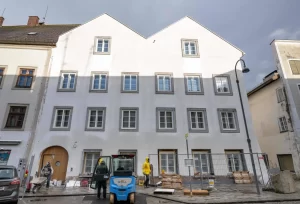In a letter to property developers on Monday, the British government directed them to pay for the removal of dangerous cladding that put scores of apartment buildings at risk of fire and many of their residents faced steep bills for repairing their homes.
In Britain’s deadliest domestic fire since World War II, fire engulfed Grenfell Tower in June 2017, exposing the danger posed by some kinds of aluminum composite cladding.
In an apartment kitchen fire, which started in flammable cladding, investigators found that the fire grew out of control because of the flammable cladding.
Since then, regulations have been enacted requiring the removal of cladding similar to that on apartment buildings, but other work has not been done because of disagreements over who should pay.
Although government funding has been available to remove cladding from high-rise buildings, it has not been available to remove it from low-rise buildings.
Gove said early March is the deadline for developers to come up with a plan to pay the estimated 4 billion-pound ($5.4 billion) cost of replacing cladding on low-rise buildings, or face legal action and a tax increase.
Using the legal system and, if necessary, the tax system, Gove promised that the government would ensure that it is not the individuals who had to foot the bill for a problem they did not cause, but rather those with deep pockets, those responsible for the upkeep of the buildings.





